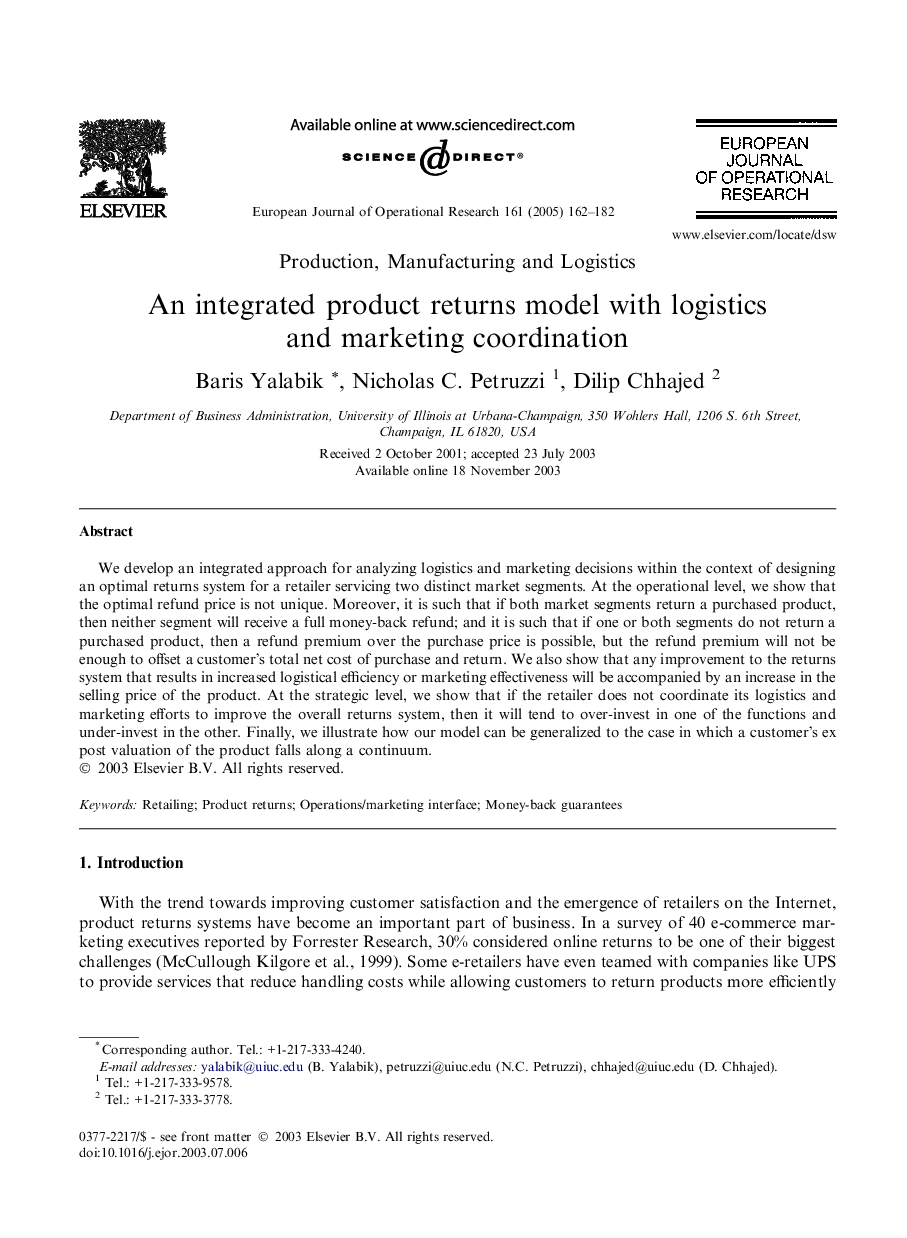| Article ID | Journal | Published Year | Pages | File Type |
|---|---|---|---|---|
| 9664043 | European Journal of Operational Research | 2005 | 21 Pages |
Abstract
We develop an integrated approach for analyzing logistics and marketing decisions within the context of designing an optimal returns system for a retailer servicing two distinct market segments. At the operational level, we show that the optimal refund price is not unique. Moreover, it is such that if both market segments return a purchased product, then neither segment will receive a full money-back refund; and it is such that if one or both segments do not return a purchased product, then a refund premium over the purchase price is possible, but the refund premium will not be enough to offset a customer's total net cost of purchase and return. We also show that any improvement to the returns system that results in increased logistical efficiency or marketing effectiveness will be accompanied by an increase in the selling price of the product. At the strategic level, we show that if the retailer does not coordinate its logistics and marketing efforts to improve the overall returns system, then it will tend to over-invest in one of the functions and under-invest in the other. Finally, we illustrate how our model can be generalized to the case in which a customer's ex post valuation of the product falls along a continuum.
Related Topics
Physical Sciences and Engineering
Computer Science
Computer Science (General)
Authors
Baris Yalabik, Nicholas C. Petruzzi, Dilip Chhajed,
